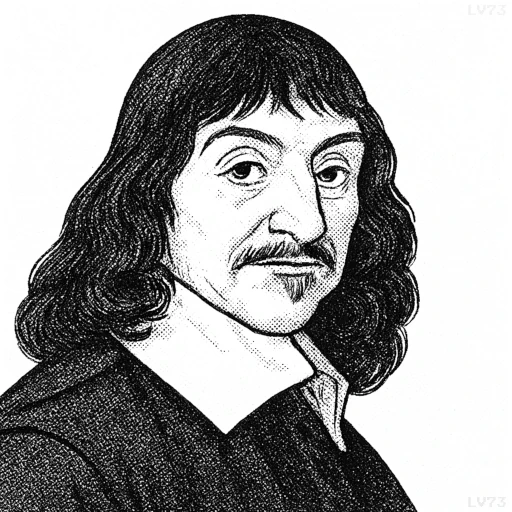“I think; therefore I am.”

- March 31, 1596 – February 11, 1650
- French
- Philosopher, Mathematician, Scientist, Father of Modern Philosophy
table of contents
Quote
“I think; therefore I am.”
Explanation
This famous statement—originally Cogito, ergo sum in Latin—is the foundation of Descartes’ philosophy and one of the most iconic declarations in Western thought. It expresses the idea that the very act of thinking is proof of one’s existence. Even if all else is doubted—sense perception, the external world, even one’s body—the fact that one is engaged in the act of doubting proves there is a thinking subject doing the doubting. Therefore, thought itself is the undeniable evidence of being.
In the 17th century, Descartes was confronting widespread philosophical skepticism and searching for a foundation of knowledge that could not be questioned. By doubting everything that could possibly be doubted, he arrived at one indubitable truth: that he was thinking. From this starting point, he constructed his system of rationalist philosophy. This statement marks the beginning of modern philosophy, emphasizing subjectivity, rationality, and the primacy of individual consciousness.
Today, “I think; therefore I am” continues to influence philosophy, psychology, and even artificial intelligence. It raises fundamental questions about identity, consciousness, and existence. In an era of deep fakes and simulated realities, the cogito still offers a grounding insight: our inner awareness and capacity for reflection remain the most direct proof we have of our own being.
Would you like to share your impressions or related stories about this quote in the comments section?
